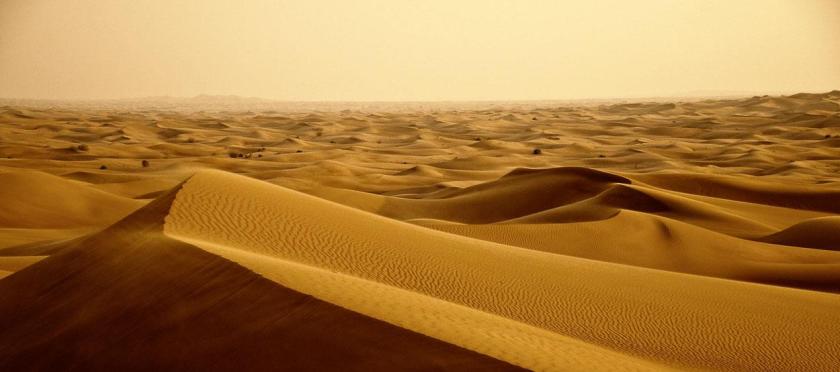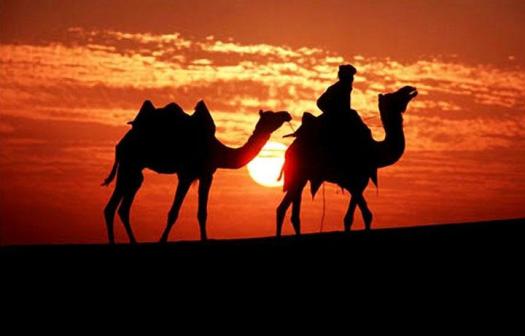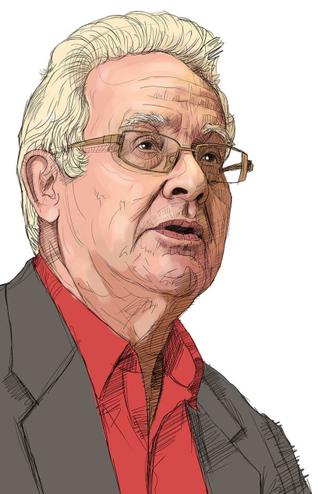
What is the purpose of the victory?
Usually in our daily life, we are alluded in kind of idea to achieve something, win the election, graduated from the college, to work in the multi-billions private company, or just be a better person.
The victory usually for many people is the goal itself. But then again, what is the purpose of that particular victory?
One chapter in Prophet ﷺ life might answer that question. As the chapter conclude the answer, it may also explain its relation with the month of Ramadan.
—————
Several years after The Prophet ﷺ and his companions went through one of the most difficult battles and the most humiliated scene in their life. It was so clear that the dream the Prophet had has been fulfilled, they enter the city of Makkah from every direction. It is though a few years ago, they desperately in anger and confusion.
Prophet Muhammad ﷺ had a dream one day. He has revealed a scene where the Muslims entering Makkah and makes the pilgrimage (Hajj). After years and years struggling in battles against the Quraish, notably after they went on against in the battle of the trench, this vision that The Prophet had, have lifted up their spirit, motivates them to move towards Makkah, ending all the animosity between the two.
After 6-7 years the Prophet ﷺ and his companions settled in Madina, the worst military engagement happened. Quraish leaders successfully convinced all the tribes around the land of Arabs to join an alliance with them marching towards Madina. They were convinced that the real problem is indeed Prophet ﷺ and his companions that reside on Madina.
The Alliance consisting ten to twelve thousand men from multi-factions of Arab tribes surrounds the city of Madina prepared to attack the city and kills every Muslim man and woman inside, annihilate them and take the spoil of wars. But one of the companions, Salman the Persian, advised something that came outside of Arab world, the trench. This scene and how the battles ended is on the surah Al-Ahzab, they were saved by the physical winds, and they went on without even battling the enemies with their swords. Moreover, there are winds that blowing news inside the Alliance that fractured their bond. Thus the battle ended and the Quraish went home.
After they had the worst military engagement, Prophet ﷺ had a dream that he and his companions entering the city of Makkah, without weapons, and do the pilgrimage. This dream revealed only a year after that worst battle happened, and now they will go entering the city of Makkah without any preparation for battle since the dream of the Prophet ﷺ was counted as revelation!
When people do pilgrimage, the tradition is that all the battles or fighting inside are prohibited. So The Quraish sends some of their men to cut off the Prophet ﷺ and his companions journey towards Makkah. Fortunately, the Muslims had their own intelligence to get that information, and made them go for an alternate place and set-up their camps temporarily. They then reached the barren field called Hudaibiya.
Long story short, after a few incidents and assassination attempts to kill Prophet ﷺ, the Quraish now forced to negotiate with the Muslims. If they attack the people who want to make the pilgrimage, the news will spread out that they abandon the sanctity of the pilgrimage and the holy city of Makkah. They will lose their respects in Arab lands.
Finally, after tough and tense negotiation, things all wrapping up, and those two had agreed for a conclusion. The conclusion is very demeaning and made the companions disappointed in many ways. They should go back to Madina, canceling the pilgrimage, and sacrifice the animals outside the city of Makkah. Moreover, any Makkah people that run away from Makkah towards Madina, they should be returned safely to Makkah. But people from Madina that comes to Makkah, they won’t be returned to Madina and becoming their captives.
All of the treaty in that negotiation put disadvantages towards the Prophet ﷺ and his companions! The companions now are in jeopardy and confusion. The level of frustration is very high. They were enraged, especially for Umar!!
Did not the Prophet ﷺ say he had been seeing a dream? Are we the People of Truth? Is he the Prophet? What are we doing here in Hudaibiya!?
As Umar asking over and over to Abu Bakr, The Prophet ﷺ giving commands to all of the companions. They were asking to take off their ihram, shave their hair and sacrifice the animals. Unexpectedly, no one hears the Prophet ﷺ!! This is the first time when they did not obey the commands directly! Prophet ﷺ then go see his wife and asking for advice. Then Prophet ﷺ take off his ihram, shave his hair and sacrifice the animal, then soon followed by the companions. Then they went back home. It seems humiliated.
When they went back to Madina, Umar pulls his horse and move towards Prophet ﷺ hoping he can make a conversation with him but then he was rejected. Three times he was asked and had being rejected. The Prophet ﷺ did not say anything to Umar.
After that scene, Umar was asked by the Prophet ﷺ to see him directly. Umar was afraid and nervous because of the scene before. When Umar came, he saw the Prophet ﷺ smiling with joy and bright face. The revelation has been sent down. He recites the full Surah of Fath.
The Prophet ﷺ says: “Tonight there has been revealed to me a Surah which is dearer to me than that on which the sun shines.”
إِنَّا فَتَحْنَا لَكَ فَتْحًا مُّبِينًا
Verily, We have given you (O Muhammad SAW) a manifest victory. [QS. 48:1]
Umar hears the whole thing, and how is that a victory, he thought himself? But with this revelation the course for all of them had been set.
In all of the incident, they were still heading back, they were still humiliated after the signing of the treaty of Hudaibiya. What is the point of this revelation? The only changes are how ﷲ through the revelation enforced the Muslim to see things differently. Not only action that defines victory, but also attitude and emotion that defines it!
Thus ﷲ defines the victory, not in a human sense, He defines it in the Quranic sense. That’s the Surah is all about.
It is to look at victory from the lens with which the Quran want to see it as opposed to looking at it in a worldly sense.
It is such a powerful lesson of the Quran!
Back to the question in the first paragraph. What is the purpose of the victory?
From the structure itself, beautifully the purpose was explained as the idea of forgiveness scattered all over the Surah! The beginning, middle and end of the Surah, it is all about forgiveness. Victory itself is not a goal! It is all about forgiveness!
لِّيَغْفِرَ لَكَ اللَّهُ مَا تَقَدَّمَ مِن ذَنبِكَ وَمَا تَأَخَّرَ وَيُتِمَّ نِعْمَتَهُ عَلَيْكَ وَيَهْدِيَكَ صِرَاطًا مُّسْتَقِيمًا
That Allah may forgive for you what preceded of your sin and what will follow and complete His favor upon you and guide you to a straight path [48:2]
وَلِلَّهِ مُلْكُ السَّمَاوَاتِ وَالْأَرْضِ ۚ يَغْفِرُ لِمَن يَشَاءُ وَيُعَذِّبُ مَن يَشَاءُ ۚ وَكَانَ اللَّهُ غَفُورًا رَّحِيمًا
And to Allah belongs the dominion of the heavens and the earth. He forgives whom He wills and punishes whom He wills. And ever is Allah Forgiving and Merciful. [48:14]
وَعَدَ اللَّهُ الَّذِينَ آمَنُوا وَعَمِلُوا الصَّالِحَاتِ مِنْهُم مَّغْفِرَةً وَأَجْرًا عَظِيمًا
…..Allah has promised those who believe and do righteous deeds among them forgiveness and a great reward. [48:29]
The purpose of the Prophet ﷺ mission was not to gain a territory. The purpose is to liberate the Ka’bah, House of ﷲ built by Ibrahim ‘alaihissalam. The reason he builds the Ka’bah is that so people can worship only ﷲ and earn their forgiveness. The reason the Muslim went on hajj is to earn their forgiveness, and now ﷲ given them the forgiveness anyway because the Quraish has signed the treaty, the Quraish will fall into domino and there is not gonna be a war necessary for them. When that happened (the fallen of Quraish), Ka’bah liberated.
When Ka’bah liberated, people’s door to earning for ﷲ forgiveness is gonna be wide opened, there is gonna be billion and billion people all over the world coming to Hajj so that Allah can forgive. The goal of Islam was to open the door for forgiveness for humanity. That is the goal of the victory of Islam!
As the Prophet Muhammad ﷺ and his companions surround the city of Makkah, a few years after the treaty of Hudaibiya and Quraish leaders were convinced that they were overwhelmed. The holy city of Makkah now is opened, conquered without even had a battle necessary.
It is as Sun Tzu says in his Art of War, “The supreme art of war is to subdue the enemy without fighting.”
The Supreme art of war, complete victory. But the important thing is not about the victory itself, it is about what is going to happen with the people of Makkah as it continues in the next passage.
————————————-
As Ramadan passes by, we are reminded how this month opens up possibilities for ﷲ forgiveness. The last ten days, particularly are the days which ﷲ sent down The Quran, or we usually uses the terms “Lailatul Qadr” or the Night of Qadr (Decree). One narration described several actions that might be the reasons for ﷲ forgiveness; fasting in the month of Ramadan, pray in its night and pray in the Night of Qadr (Decree). So once the month is completed, only then is the believer counted among those who fasted the month and pray it’s nights, thus being rewarded with forgiveness of previous sins.
It is in the same month of Ramadan, that the Fath of Makkah happened, one view says it was on 8 Ramadan that the Muslim march from Madina, and arrived at Makkah on 20 or 21 Ramadan. This blessed month of Ramadan opens up the door of forgiveness as depicted in the Surah of Fath itself.
How should we view this particular forgiveness?
We can look back, and take a look at the Prophet Muhammad ﷺ life. He showed to the people of Makkah the extent of his mercy and forgiveness even though he was exiled from his homeland, being hated and despised by some of the people of Makkah, notably The Quraish. Not forgetting they also did kill a member of his family, tortured his companions, and making his life painful.
In the month of Ramadan, when the Prophet ﷺ and his companions arrived at Makkah with more or less ten thousand men, yet The Prophet ﷺ commanded, “No conflict or battle can take place on that day” and he named it ‘the day of mercy – yaumul marhamah’ not ‘the day of slaughter – yaumul malhamah’.
It is recorded when entering his beloved city; The Prophets head was so low while riding his mount; that his beard was touching the back of his mount in complete humbleness and humility. In praise of his Creator, to thank Him for this peaceful victory. And he recited Surah of Fath along the way.
Now in a position of power, he could take a stand and took vengeance against the people of Quraish. Yet, he asked the people of Quraish how they thought he was going to deal with them, now that he had easy charge over Makkah. They replied, “as a noble brother” that they expected nothing but goodness from him and he would deal towards them kindly. The Prophet ﷺ spoke telling them“I speak to you in the same words of the prophet Yusuf (Joseph) ‘alaihissalam, who spoke to his brothers” and Prophet Muhammad ﷺ recited a passage from the Qur’an relating to the story of Yusuf ‘alaihissalam:
قَالَ لَا تَثْرِيبَ عَلَيْكُمُ الْيَوْمَ ۖ يَغْفِرُ اللَّهُ لَكُمْ ۖ وَهُوَ أَرْحَمُ الرَّاحِمِينَ
“No blame will there be upon you today. Allah will forgive you, and He is the most merciful of the merciful” [QS. 12:92].
Then he announced to them that they are free now and they may go wherever they please. The Prophet ﷺ granted his forgiveness to his former enemies, those who wanted to destroy his belief, his reputation, his life and his associates not so long ago. He forgave them all men and women that came to him or his companions. So here we see his mercy for mankind, which Muslims can only describe as a gift from the Giver of all things.
These descriptions alluded back to the core of the Surah of Fath, the true meaning of victory. To seek forgiveness.




